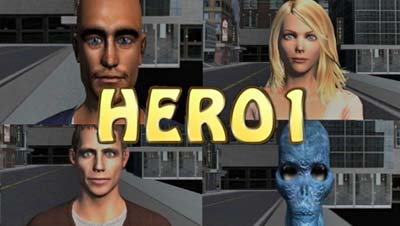 Communications Media doctoral student Ahmed Yousof won a top prize for his video game proposal at the 2013 Education Without Borders (EWB) conference in Dubai, United Arab Emirates, March 26–28.
Communications Media doctoral student Ahmed Yousof won a top prize for his video game proposal at the 2013 Education Without Borders (EWB) conference in Dubai, United Arab Emirates, March 26–28.
Yousef's proposal conceptualizes an educational video game called “HERO 1” to teach English language and American culture to Arab students. It was one of only 32 papers that EWB organizers selected for conference presentation out of about 3,600 submissions worldwide, and it went on to take first place in the category “New Media and Mobile Learning” at the conference.
The win spotlights IUP's place in the vanguard of instructional technology development, brings the chance to explore opportunities with Microsoft, and crowns six months of collaboration by the team in the Communications Media Applied Media and Simulations Game Center in Stouffer Hall.
How a “HERO” Is Made
The annual conference, which is often attended by leaders from Microsoft, Apple and other leaders in the technology world, was created to help college students advance their ideas to further education efforts in parts of the world where resources are limited.
Presentations must include a concept proposal, a marketing plan, and detailed budget. They are judged by pre-eminent thought-leaders in education, including this year, eight Nobel Laureates.
Yousef's road to the EWB began when he wrote the paper the game proposal would eventually be based off of. Rather than submitting the paper to an academic journal, Yousef decided to “go even bigger,” Almeida said.
Yousof, a student in the new doctoral program in Communications Media, explored the protocol for submissions to EWB, and he began to brainstorm ideas for a video game concept before eventually zeroing in on an educational game. He considered the utility of a language and culture game that might be used, for example, by Olympic athletes traveling to foreign countries.
Drawing from his own observations, Yousef created a character named Malik, an Arab teenager in the United States, and wrote situations in which Malik learns to speak English and understand American cultural norms, such as how to help strangers in distress or personal space boundaries, and he makes friends along the way.
“You can learn English by watching TV, but you can't rely on that to learn the culture,” Yousof said. ”Why not have a video game that bridges language and culture?”
Five Communications Media undergraduate students who are beta-testers in the MoCap Lab — James McHenry, David Algeo, Shawn Yutzey, Caleb Byers, and Jake Saures — came on board to produce a trailer. Though the resources were modest — a couple computers with iClone and Windows Kinect — the students worked hard to help put the “entertainment” into the product.
Yousof represented the IUP team in Dubai, addressing a packed auditorium. He gave a knockout presentation — a proposal that incorporated a strong concept as well as a budget and marketing plan and a game trailer incorporating photorealism, game flow, terrain, graphics, story and character development.
“Our proposal was practical, innovative, real, and first-hand,” says Yousof. “It's what people need in an educational video game.”
The team is now exploring opportunities with Microsoft.
—Deborah Klenotic